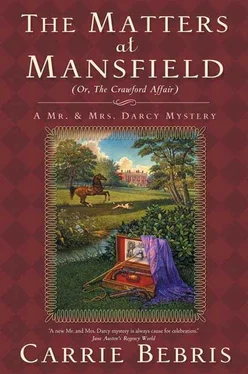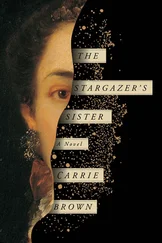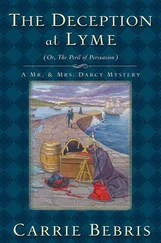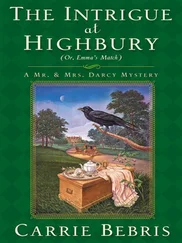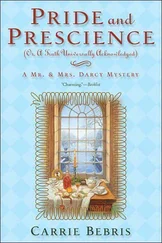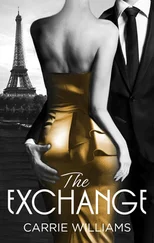Henry watched Edmund walk off, then turned to Darcy. “I am not a cad. When Meg’s father suddenly died, leaving her and her bedridden mother destitute, my desire to rescue her was also genuine. So I married her.”
“Under false pretenses,” Darcy said. “How very noble of you.”
“I was overtaken by the romance of it. I did not dwell upon the consequences.”
“That appears to be a theme of your courtships.”
“I realize I have acted badly, but if my attempt to explain is going to elicit naught but hostility I must beg leave to postpone further discussion of the matter. This has already been a day of vituperation from so many quarters that I cannot begin to absorb it all.” He started to enter the inn.
Darcy was not finished with him. “Why did you never confess your true identity to Mrs. Garrick and install her at Everingham?”
“A former servant as mistress of a large estate? You know as well as I do that she would have been ostracized by the entire neighborhood. Still worse would have been her reception in London. She would have been isolated, lonely, and miserable. Meg was better off in her native village, among her own people.”
There was a degree of truth in Mr. Crawford’s assertion. The social gulf between Meg’s world and the Polite World was indeed great — so great that it would have acutely restricted Mr. Crawford’s own connections. Usually it was bridegrooms who dropped the acquaintance of inappropriate associates from their bachelor days, not the other way round, but Mr. Crawford’s visiting card tray would have accumulated naught but dust in the weeks following Meg’s introduction. His wife would have been a social liability, and Henry Crawford craved society.
“So you relegated your wife to a cottage with her crippled mother while you enjoyed a carefree gentleman’s life in London and Bath?”
“I provided well for Meg — she wanted for nothing. She no longer needed to work at the inn. She had a household servant and a nurse to help with her mother.”
“On a merchant marine’s pay?”
Henry shrugged. “John Garrick sailed on profitable ships.”
“And what of my cousin Miss de Bourgh? How can you justify your treatment of her?”
“I rescued Anne as well — from bondage to the deplorable Neville Sennex. But whereas my marriage to Meg was unequal, a youthful indiscretion regretted in hindsight, Anne is a lady of my own station, worthy to assume the role of Everingham’s mistress and mother to my heirs. Had I more time, I would have extricated myself from Meg before wedding Anne — it would have been far tidier — but eloping to Scotland was the decision of a moment, necessitated by Anne’s imminent betrothal. Even so, I had contrived a plan to terminate my obligation to Meg. Had she not traveled here, she would this week have received a letter informing her that John Garrick had died at sea. She would have inherited a sum large enough to attract a decent husband if she chose to remarry, or to maintain her comfortably for the rest of her life if she did not. Anne and I would have lived happily ever after, and no one would have suffered any injury.”
“No one but the grieving widow, the deceived wife, and anyone who values honesty in the world.”
“I can see you are unmoved. Very well. I am grown quite parched from all this talk and am going inside in search of a draught that will quench my thirst and fortify me for the forthcoming interviews with Lady Catherine and Sir Thomas that I anticipate with so much pleasure. You may join me if you like; otherwise, should anyone else materialize to condemn me for a past wrong, tell him to return within a few hours, at which time he may abuse me at his leisure. By then my ears should be able to accommodate fresh rancor.”
Darcy was so thoroughly sick of Mr. Crawford — his smoothness, his excuses — that it was with relief that he watched the door close behind him. He wandered out of the courtyard to the village green, where a stone bench offered a view of the inn’s entrance. From here he could remain alert to Mr. Crawford’s movements while achieving deliverance from the rake’s proximity.
Shortly, Elizabeth emerged. A minute’s scan revealed his position to her, and she joined him on the bench.
“I saw Mr. Crawford as I passed through the dining room. You have done with him?”
“For the present. How is Mrs. — ” He had been about to call his cousin “Mrs. Crawford,” an appellation which now elicited such feelings of abhorrence that he shuddered to pronounce it even in his own mind. “How is Anne?”
“Conscious, though I do not know how long she will maintain that state. The apothecary administered more laudanum. She was quite agitated by today’s revelations, as anyone would expect. Colonel Fitzwilliam remains with her. In his own mind he stands guard against any attempt Mr. Crawford might make to gain admittance, but I believe he also provides Anne a calming influence. His presence when she regained her senses seemed to offer steadiness on a day on which her life has been utterly upended.”
“Where is my aunt?”
“Closeted with Mr. Archer.”
“That conference will likely continue through the evening.” Lady Catherine must be desperate to mitigate the damage Mr. Crawford had wrought upon Anne, and was fortunate that Mr. Archer had arrived when he did. The solicitor was his aunt’s most trusted advisor — or henchman, depending upon one’s perspective. Whatever Lady Catherine bade, Mr. Archer undertook with alacrity. He obviated difficulties and made problems go away. Whether a matter was titanic or trifling, her ladyship had only to say, “Mr. Archer will handle it,” and whatever “it” was, was done.
How even Mr. Archer could meliorate the crisis at hand, however, Darcy could not imagine. As if voicing his thoughts, Elizabeth asked whether the situation could possibly end well for Anne.
They both knew the answer. “Once word of this circulates — and I do not see how exposure can be avoided — Anne is ruined,” he said. “Even should her marriage be ruled valid, the scandal of bigamy, compounded by the elopement, will forever taint it. And if she is in fact not married at all—”
“She never will be, to anybody,” Elizabeth finished. “Her virtue has been compromised. Though it happened through no fault of her own, no respectable gentleman will have her.” It was a sad statement of fact.
“While my allegiance of course rests with Anne,” Elizabeth continued, “I cannot help but also pity Mrs. Garrick. She, too, is an innocent victim of Mr. Crawford’s duplicity. What an awful discovery, to learn that not only might she have been living in a conjugal state with a man to whom she is not truly wed, but that the man himself is entirely a fiction. Even should the court determine that they are indeed married, she is married to a stranger. She does not know her own husband.”
“The more I learn about him, the more I believe no one knows the real Mr. Crawford. He is another George Wickham, only with the financial wherewithal to indulge his vanity’s every whim. He is a player of roles, a chameleon, cold-blooded and able to present himself as anything necessary to protect his interests.”
“I wonder whether Mr. Crawford himself knows the real Henry Crawford.”
The coach upon which Meg had arrived prepared to leave. Passengers who had been waiting inside the inn now came out and boarded. It sped away, its team’s hooves thundering.
Darcy and Elizabeth returned to the inn. Darcy had expected to find Mr. Crawford still quenching his thirst, but he was not in the dining room. Mrs. Gower said that he had taken a new chamber for himself and retreated.
As the dining room was nearly empty, they decided to take their own meal while they could enjoy it in relative peace. Afterward, they stopped by Anne’s room.
Читать дальше
